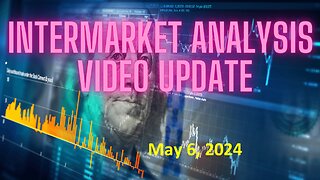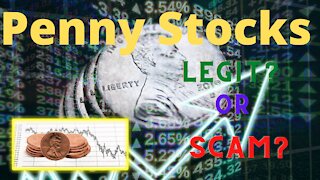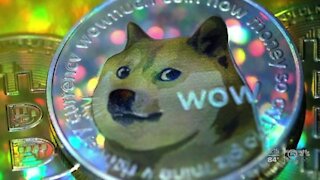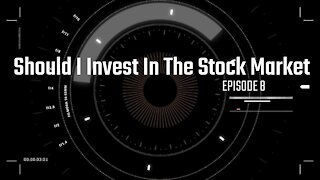Should I Invest in Forex?
My Exclusive Free Workshop The Four P's of Building a Successful Investing Program → https://spxinvesting.mailchimpsites.com
Blog: https://spxinvestingblog.com
Facebook Public Group: https://www.facebook.com/groups/433843641082343
In 1971, the gold standard and the system of fixed exchange rates were abandoned.
CME traders did not have access to exchange rates to adjust positions.
The CME established the IMM in 1972.
Forex trades world currencies.
Currencies need to be exchanged for:
Importing and exporting
Travel
Multinational company revenues.
Currency pairs:
EUR/USD
USD/JPY
GBP/USD
AUD/USD
USD/CHF
USD/CAD
EUR/JPY
EUR/GBP
Names of The Foreign Exchange Market
Forex, FX Market, Currency market
Quotes
USD/JPY = 119.50
Currency pair:
The currency to the left is the base currency.
The currency on the right is called the quote, or counter, currency.
The base currency is always equal to one unit.
The quote means that US$1 = 119.50 Japanese yen.
Spreads and PIPs
Bid/Ask Spread:
Example: EUR/USD = 1.2500/03, the spread would be 0.0003 or 3 pips.
Small movements can result in thousands of dollars made or lost.
A Pip is the smallest price move.
Example:
The U.S. dollar, Euro, British pound, or Swiss franc, one pip would be 0.0001 (four decimal places).
With the Japanese Yen, one pip would be 0.01 (two decimal places).
Trade range 100-150 pips a day.
Foreign Exchange Futures Contracts
Different than Futures Contracts that trade in Chicago (CME).
Forex: Spot Market, cash price
Currency futures: rate at a specified date in the future.
Futures are US regulated Forex markets are not US regulated.
Quotes are always against the U.S. dollar.
Contracts represent a claim to a:
Certain currency type
At a specific price per unit
On a future date for settlement
Exchanges
Other futures exchanges:
Euronext.liffe, (Europe)
Tokyo Financial Exchange (Japan), and
Intercontinental Exchange (US, Canada, and Europe)
Liquidity
Before the Internet, most foreign exchange activities were done by:
Large financial institutions
Corporations
Central banks
Hedge funds
Extremely wealthy individuals
Now Individual Investors can easily use online brokerage accounts.
Forex offers round-the-clock trading 5.5 days per week and has massive liquidity.
Forex market largest and most liquid market in the world. Over $5 trillion daily versus $169 billion per day for the NYSE.
Prices are driven by Supply and Demand.
Leverage
Volatility is not very high but leverage allows for quick gains or losses.
Movement is enticing
Leverage can be as high as 250:1 (50:1 is common).
Leverage can be risky.
Enticements
Liquidity
Large trades
Volatility
Global structure
Low margin requirements
Forex has few trading vehicles where stocks have thousands.
Seven different currency pairs:
(EUR/USD, USD/JPY, GBP/USD, USD/CHF) (USD/CAD, AUD/USD, NZD/USD)
Cross Currencies:
Currency trading can be “easier” to follow.
The stock market may become “slow,” which results in lower volume and activity.
Involves buying and selling simultaneously.
Forex Exchanges
Similar to the NASDAQ, the Forex Market does not have a central location, or exchange, where trades take place.
Electronically using computer networks.
Currencies are traded worldwide, in almost every time zone, in major financial centers including:
London, New York, Tokyo, Zurich, Frankfurt, Hong Kong, Singapore, Paris, Sydney
Advantages
Low Costs: No commissions. Most forex brokers make profits from the spreads.
All time frames (minutes to months).
Very High Liquidity
No central exchange
No insiders, global factors and perceived developments.
Deregulation also helps keep costs low.
Shorting is easier.
There are 28 major currency pairs involving eight major currencies.
Low Capital Requirements:
Choices: Technical Analysis. Fundamental analysis theories and tools for long-term forex trading.
Risks
Leverage is a double-edged sword.
Losses can wipe out an account quickly.
Reaction to information
Disadvantages
Lack of Transparency:
Deregulation means little control over how a trade is filled. The market is not regulated, but US brokers are regulated.
Complex Price Determination Process:
Global politics or economics can challenge reliable conclusions.
High Leverage:
Self- Directed Learning:
Forex traders get little or no assistance. Most traders quit quickly due to losses, limited forex trading knowledge, and training.
Recourse:
Stock investors can go to regulators. Forex traders have nowhere to go. For example, if a currency collapses.
Conclusion
Forex trading is actually quite difficult. Most beginners fail.
Success requires:
Perseverance, Continuous learning, Efficient capital management techniques, The ability to take risks
A robust trading plan
The Internet full of gurus, programs, software, and books promising an easy road to riches by trading the forex market. This is unrealistic.
-
 35:09
35:09
The SPX Investing Program
9 hours agoInterMarket Analysis Update for May 6, 2024
34 -
 44:50
44:50
The SPX Investing Program
2 years ago $0.05 earnedShould I Invest in Cryptocurrencies?
177 -
 14:45
14:45
The SPX Investing Program
2 years ago $0.13 earnedShould I Invest in Penny Stocks?
142 -
 1:33
1:33
EntertainmentVideos
2 years agoWhy You Should Invest In Gold Coins?
47 -
 2:16
2:16
WPTV
2 years agoShould you invest in Dogecoin?
4951 -
 4:23
4:23
AndersonAdvisors
3 years agoShould You Invest in Turnkey Rentals?
43 -
 59:49
59:49
Podcast
3 years ago $0.03 earnedEpisode 8 Should I Invest In The Stock Market
75 -
 6:45
6:45
Super Affiliate Marketer
3 years agoShould You Invest In Legendary Marketer (HONEST OPINION)
37 -
 1:58:47
1:58:47
OFFICIAL Jovan Hutton Pulitzer Rumble
14 hours agoAsk Me Anything! Let's Catch Up - Tell Me About Your Concerns and Let's Find Solutions!
75K43 -
 56:56
56:56
The Squad
19 hours agoArsenal GOING CLEAR & Man City WILL FLOP🏆 Big Ange is a FRAUD😨Enzo Fernandez MUST BE SOLD!
84K11